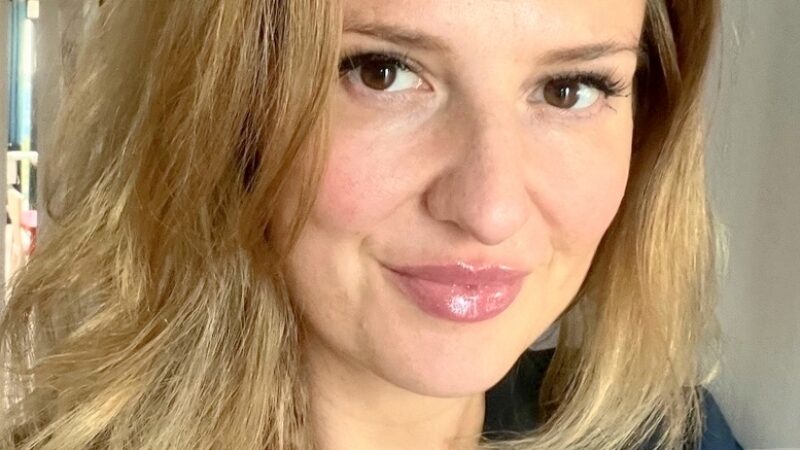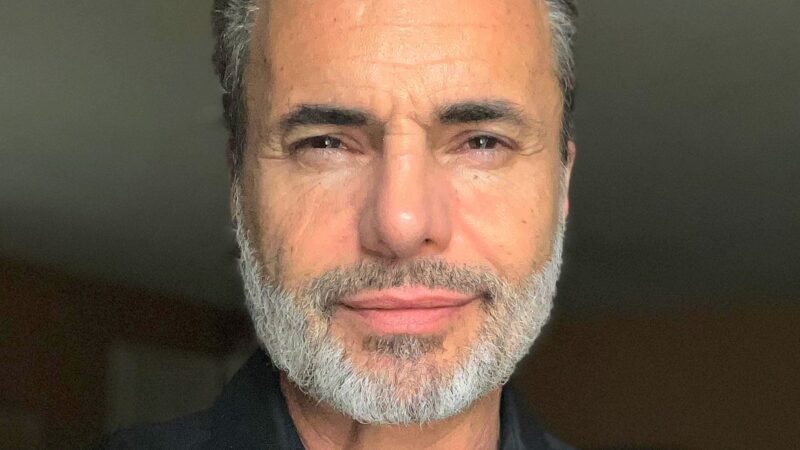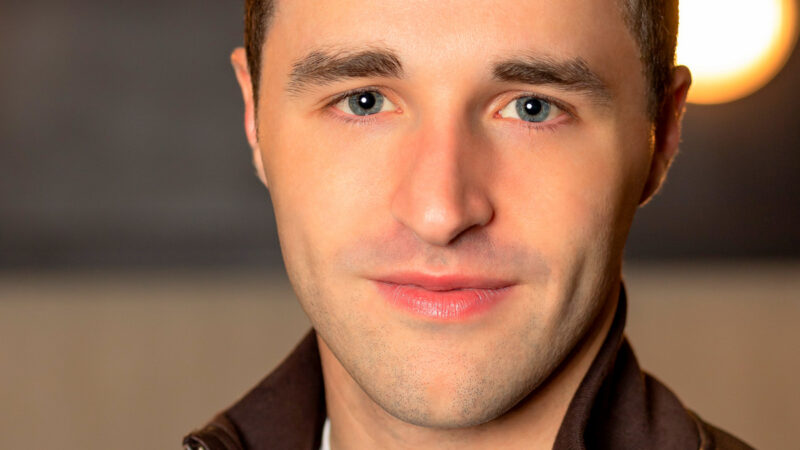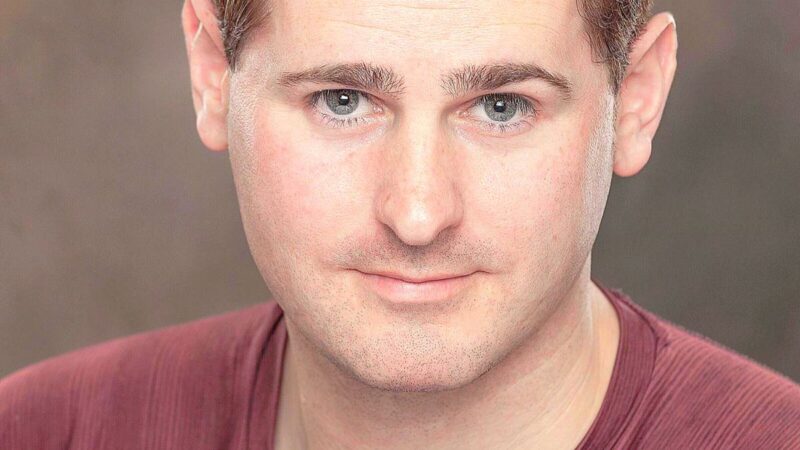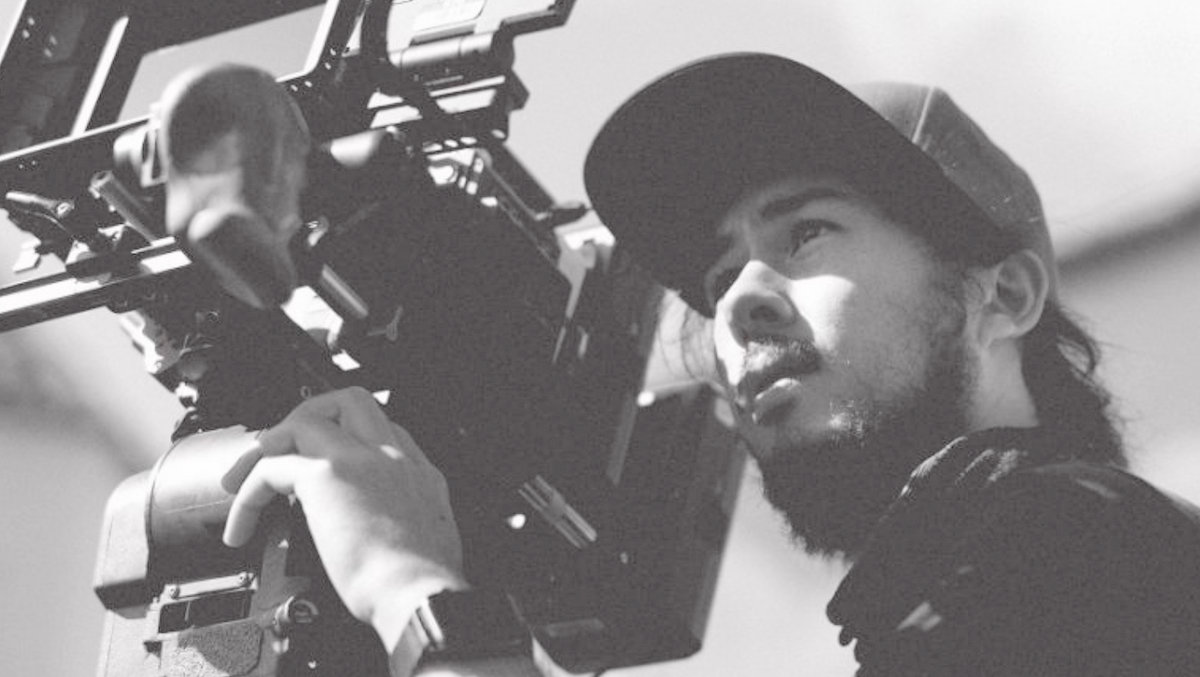
Darren Haruo Rae, a Japanese-American producer/director based in Los Angeles. He co-founded the boutique production company Roann Films. Nisei is inspired by his grandfather’s WWII experiences in the internment camps and the 442nd Regimental Combat Team. It earned the Oscar-Qualifying award for Best Dramatic Short Film at Cinequest Film Festival in 2023. Nisei continues to win throughout the festival circuit. It has screened at Indy Shorts by Heartland Film, and LA Shorts International Film Festival. HollyShorts Film Festival, and Newport Beach International Film Festival, to name a few.
Darren Rae has directed high-profile commercials and branded content for clients. Such as Western Digital, Airbnb, and Cisco and is the series producer for the MasterClass G.O.A.T. Original Series. He is currently producing the feature film Surrender, starring Andrea Bang. Surrender was selected as one of Film Independent’s Fast Track fellowship program’s top 10 narrative fiction features. It is slated for production in Q1 of 2024.
Watch The Official Trailer for NISEI Written and Directed by Darren H. Rae
indieactivity: Describe your experience with 442nd, the purple heart battalion doing a great festival run?
Darren Rae (DR): It has been an amazing experience seeing all of the support and outreach for the film. I am extremely proud of our festival run and I think it shows the relevancy of these stories and the importance of telling them. Every time we screen the film, someone comes up and says “I never knew about this. Why did I never know about this?”
Why document 442nd, the Purple Heart battalion? It seems necessary; why, how’d you arrive at this choice?
Darren Rae (DR): Being 4th generation Japanese-American, I grew up with stories from my family about the internment camps and the 442nd. I always knew I wanted to tell a story about this regiment and show the courage, heroism, and sacrifice that these brave people made. When I became a filmmaker, I knew it was just a matter of time until I could bring it to life. The 442nd is just one of thousands of untold stories of the war, and I feel responsible to keep their legacy alive.
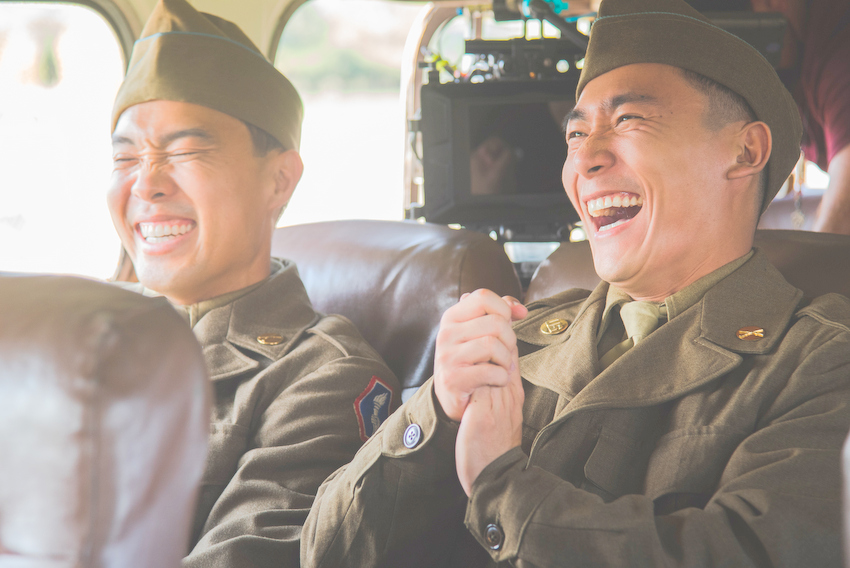
Its a film you‘ve shot. How’d you secure the cast, location and gear? What went into the process?
Darren Rae (DR): Coming up through the industry as a crew-member (IATSE Dolly Grip), I’ve had a lot of experience being on set. I’ve worked on everything from tiny features to big TV shows. This really was a labor of love and I was able to reach out to a lot of co-workers and friends to ask for help. Having those connections and the knowledge base, we were able to run an extremely efficient set and work out deals on rentals and locations.
Our casting process was a shot in the dark, posting casting calls and hoping people would audition. The results was an amazing turnout and finding extremely talented people. I like to think that the Nisei cast and crew became a close-knit family, being able to be creative in a safe environment and elevate each other.
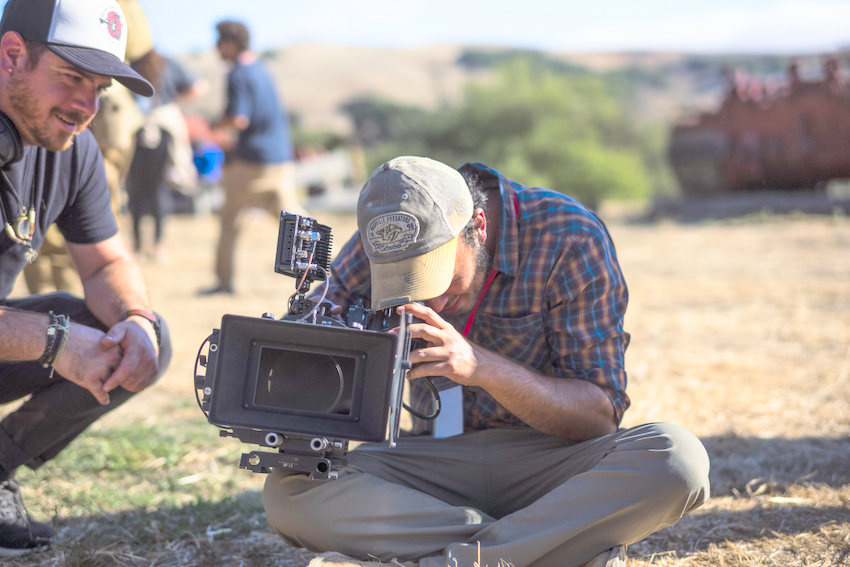
Who is “NISEI” for? Who do you think would it suit the least or not suit at all?
Darren Rae (DR): Above all ‘Nisei’ is my love letter to my family and the Japanese American community. I am where I am today because of these core values that were instilled in me at a young age. But I believe the message is universal. People need hope, courage, a place to belong. While it is a story about the Japanese American community, anyone can relate and take something away from the film.
How long did it take to shoot and edit “NISEI” together?
Darren Rae (DR): Our total shooting schedule was 8 days. Being a period piece with multiple locations, effects, and a decent size cast, we wanted to make sure we never felt rushed. Safety was the top priority for us and we made sure to take our time with everything, especially the battle scenes. Post production was an additional 4 months. Doing a effects practically meant we didn’t have to rely as much on visual effects (we did have to matte paint out a few modern houses in shots). Sound Design was the most intense because it conveyed so much of the cadence of each scene. It was a lot of fun putting all of the pieces together as each stage of post added dynamism which continued to spur new ideas.
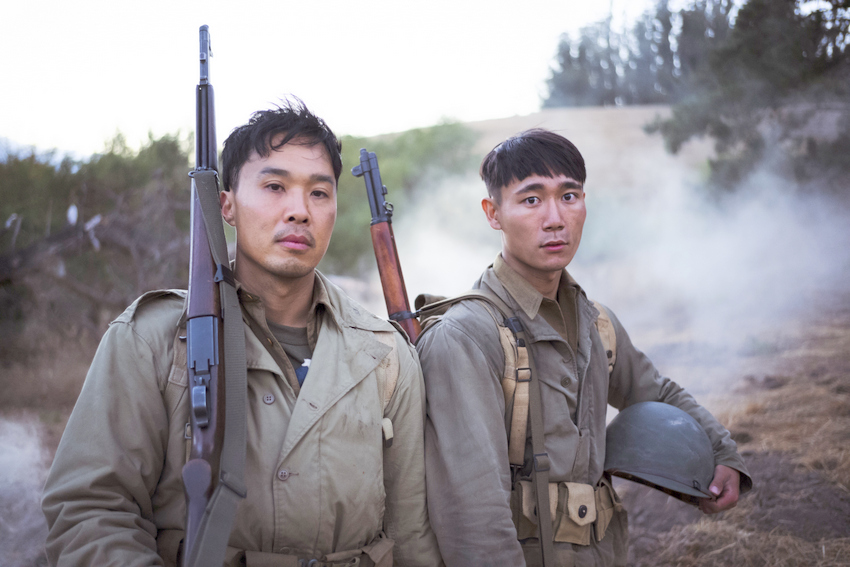
Tell us about the post-production process? How did you achieve of the feel of the 40s?
Darren Rae (DR): We had an incredible post team who elevated every frame we shot. Caleb Wheeler, our editor, was a crucial collaborator in making sure the pacing of the film was correct and that every specific beat hit properly. Nick Bozzone, our sound designer, built the world through sound. There was many conversations leading up to filming about the theory and tonality of each scene and how sound would be the glue that held everything together.
Yuichiro Oku, the composer, brought unbelievable weight to the story, giving my grandfather his own theme song, which I will forever be grateful for. And last but not least, Fred Bokkenheuser, our colorist from Picture Shop. Before we even gave notes, we came into our first session with Fred, blown away by his style and level of detail. I and my cinematographer, Connor Van Bodell, had a vision we wanted to achieve, and Fred stepped up and brought it to new heights.
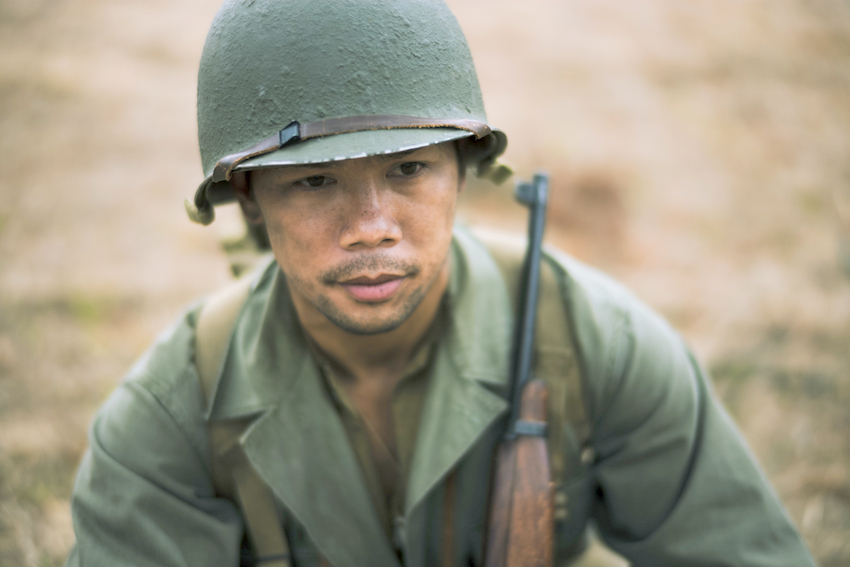
Why is diversity important both in front of and behind the camera?
Darren Rae (DR): Diversity is important because it means diversity in ideas. It gives a bigger room to creativity and collaboration. Everyone comes from different walks of life and everyone’s story is unique. The beauty of filmmaking is that it is a team sport. All of us working together to achieve something greater than the sum of its parts. I am extremely proud of the ‘Nisei’ family and the work we were able to achieve in a safe and fun environment.
What were your goals with “NISEI”?
Darren Rae (DR): The goal with Nisei is two things. First, it is a film that can be used to inspire and educate people about the 442nd’s legacy. We continue to work with Japanese American communities, museums, and foundations to show the film to as many people as possible. The 2nd, is that it is a proof-of-concept for a larger idea. I would love to do a feature film or mini series that can really dive deep into both the 442nd as well as the harsh realities of the internment camps.
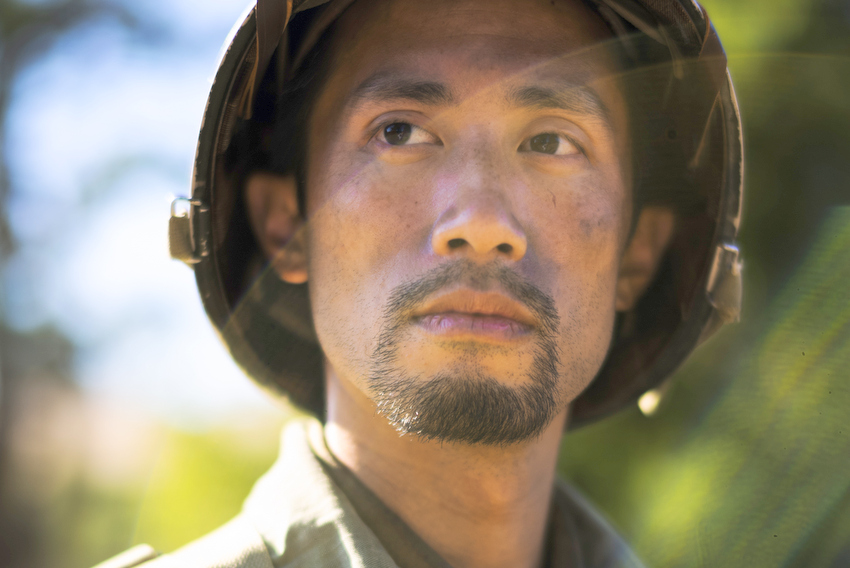
What’s next for you? What are you working on right now?
Darren Rae (DR): Besides writing the feature of ‘Nisei’, I am producing a feature film going into production in January 2024 titled ‘Surrender’ staring Andrea Bang from Kim’s Convenience, tackling problem gambling and intergenerational trauma in the Asian community.
What would you recommend to a director at the beginning of his/ her journey?
Darren Rae (DR): If I had to give advice on someone starting their directing career, I would say to find things you are passionate about. Find stories, themes, or anything that make you excited to get out there and make it. I think there is so much outside pressure and noise that it is often challenging to find what you truly want to make. So first and foremost, make it for yourself. Make a movie you would want to see as an audience member.
Tell us what you think of the interview with Darren Rae. What do you think of it? What ideas did you get? Do you have any suggestions? Or did it help you? Let’s have your comments below and/or on Facebook, Instagram, or Twitter.
Socials
Website
IMDb
LinkedIn
Facebook
Instagram
Vimeo
FILMMAKER INTERVIEWS

